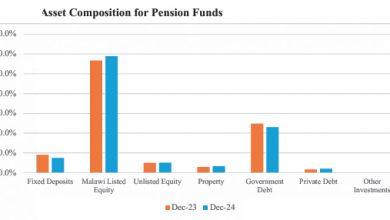Labour market data key to Tevet transformation
The Ministry of Labour says labour market data plays a crucial role in advancing Technical Entrepreneurial Vocational and Educational Training (Tevet) skills to meet industry demands.
Secretary for Labour Chikondano Mussa highlighted this recently in Lilongwe during the opening of the stakeholder validation workshop, convened to discuss the draft report of the Assessment of the Malawi Tevet Ecosystem. The evidence-based report was commissioned by the British Council within the context of the European Union (EU)-funded Zantchito Skills for Jobs Project Technical Assistance Component.
Among other issues, the assessment identified Malawi’s insufficient labour market data as a significant challenge and Mussa emphasised that the absence of such data impacts planning and decision-making within the Tevet sector to meet labour market needs in terms of a skilled workforce. She urged both governmental entities and the private sector to collaborate in resolving this issue.

Mussa said: “The report will shape the future of Tevet by addressing key issues such as the lack of labour market data and the mismatch between supply and demand for skilled workers in all priority sectors of the economy.”
Mussa urged the participants who represented a wide range of Ministries, Government entities and representatives of the private sector to question the issues and recommendations in the report, stating: “This will ensure that the final version of the report accurately and realistically describes the Tevet sector, and for Malawi to benefit from the findings in order to transform the skills provision”.
In his statement, Head of Cooperation at the EU Delegation in Malawi, Ivo Hoefkens, highlighted that the 55 million euros Zantchito Skills for Jobs project is implemented through two components: addressing skills development and entrepreneurship promotion in Malawi.
He stated that the overall objective of the project is to increase employability and self-employment opportunities available to young Tevet graduates and entrepreneurs, with special attention to women’s needs.
Hoefkens explained that the assessment is the first of its kind in Malawi, providing in-depth analysis of the key challenges of the Tevet system and concrete recommendation to address the said challenges based on the Torino Process methodology adopted by the European Training Foundation (ETF), which is an EU agency concerned with Tevet development in non-EU partner countries.
The report proposes the need for a robust Labour Market Information System (Lmis) to reduce the gap between the supply and demand for skilled workers; the importance of structuring employer engagement through the establishment of Sector Skills Councils and the improvement of resource management in financing the Tevet system.
British Council country director Vera Ng’oma explained that the assessment aims to enhance the Tevet sector, particularly through policy improvements. She stressed the importance of the report in establishing a baseline to understand Tevet challenges thoroughly, enabling the identification of priority areas where the Zantchito project can provide technical support to the Ministry of Labour in addressing the challenges.
Ng’oma stated: “This approach ensures a methodical, evidence-based and participatory understanding, providing clear recommendations for moving forward. Without reliable data and analysis, it is challenging to assess the current situation and plan effectively.”
Some of the proposed recommendations in the report include:
l Revising the Tevet programmes on offer to meet the needs of the labour market based on accurate information and data;
l Structuring and institutionalising employer engagement in Tevet;
l Importance of conducting regular and robust tracer studies to monitor Tevet graduates and dropouts;
l Establishment of a framework for teachers’ continuous development and progression; and
l Restructuring student selection and enrolment procedures and the improvement of donor coordination in Tevet to maximise the impact.
The Assessment of the Tevet Ecosystem provided in-depth analysis of five building blocks including; Country and Tevet overview; the Economic and Labour Market Environment; Social Environmental and Individual Demand for Tevet; Internal Efficiency and Operation of Tevet; and Governance and Financing of Tevet.
The report outlined the current issues in each block and the key recommendations in addressing these issues.





